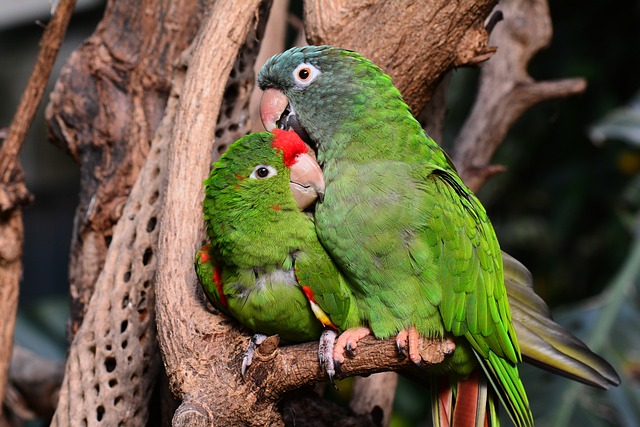Introduction
If you are ready for the responsibility of having a pet bird, here’s what you need to know:
Choosing a bird
Choosing a pet bird is a big decision. You want to make sure that you choose a healthy, happy bird that fits into your lifestyle and will be compatible with other pets in the house.
The most important thing is to choose the right species for you! Some birds are cuddly and love being held on their owner’s shoulder; others prefer to fly around the room or outside in an aviary. Birds that like attention from humans can be great for those who have time for them daily, but aren’t always ideal if you’re busy working all day long—or if there are small children in your home who might drop them (and they could get hurt). If this sounds like something you’d like to do with your pet parakeet or cockatiel every day, then get one! But if not…try another type of animal instead!
Choosing a cage
You’ll need a cage for your bird to live in. The size and type of cage you purchase depends on the bird’s species and personality, as well as its adult size. Consider whether you want your pet to spread its wings or climb on top of toys when choosing a cage design.
Also consider what material you want the cage made from: solid wood, wire, or plastic? A solid-wood cage is more expensive but much sturdier than wire or plastic ones—it can even last for generations! Many people choose a combination of materials for their birds’ cages—for example, using wire mesh for part of a wooden frame and adding Plexiglas corners where they attach with bolts through pre-drilled holes in all three pieces (wire mesh). This allows more light into these areas so that seedlings can grow up higher off ground level if desired.
Bird Care
Feeding your bird
A bird’s diet is based upon a wide variety of foods, with seed being the most popular. As with any pet, it’s important that you feed your bird food that meets its nutritional needs and that makes them feel good.
There are many seeds available on the market today. Some birds enjoy eating mixed nuts and dried fruit, so be sure to provide this type of healthy treat as well. Your avian vet can help you decide which foods are best for your particular pet.
Birds should eat three times daily; however, if they have certain illnesses or other medical conditions which require special care, their feeding schedule may need to be adjusted accordingly by an avian vet or other professional in the field (such as an exotic animal veterinarian).
Providing water
Birds are very sensitive to their environment and need the proper amount of water. You can provide a birdbath, or you can give your bird a water bottle with a dish attachment that provides fresh water at all times. You could also provide a large bowl for bathing and drinking from at all times.
Handling your bird
Do not grab or pull your bird.
Do not pick up your bird by its feet.
Do not let your bird fly around the house, as it could hurt itself or others.
Birds should be allowed to land where they want, but if they’re perched on something that makes you uncomfortable, move and tell them about it—they will understand!
Avoiding problems with your bird
As with any pet, it is important to keep your bird away from other animals. Birds should never be allowed to fly freely in the house or on the furniture; they are susceptible to picking up diseases and parasites that could infect not only themselves but also your other pets.
If you are planning on having more than one bird, make sure they get along well together before adding a second one. Birds prefer company over solitude, so if one becomes upset or disoriented because of another pet in the house (for example, a cat), it may act out by screaming incessantly or even biting its owner!
Make sure that you do not let your bird fly around outside at all times; it needs regular exercise but too much exposure can cause damage and hurt itself accidentally when landing on things like playground equipment or cars driving by (yes this happens).
If you are ready to take on the responsibility of having a pet bird, here’s what you need to know.
If you are ready to take on the responsibility of having a pet bird, here’s what you need to know.
Birds are social animals that thrive in pairs. It is also important for them to have plenty of mental and physical activity, as well as companionship from their human caregivers. In order for birds to remain content in captivity, they require cages (which should be large enough for them to fly around in) and lots of space outside of those cages where they can exercise their wings. A good diet is essential for keeping your bird healthy and happy!
Birds need fresh water daily–water bottles work best because it’s easy for the parrot or cockatiel owner set up automatic refills so that no one has to worry about remembering this task each day!
Parrots require a balanced diet consisting mostly of vegetables supplemented by fruits and nuts/seeds/beans/grains (depending on species). They will enjoy millet sprays which provide extra vitamins when added regularly!
Parrots also love human interaction; don’t forget this aspect while deciding whether you want one as part of your family! Treat them well as they are an intelligent and caring species.
Conclusion
Taking care of a pet bird is an enormous responsibility, but it can also be very rewarding. It’s important to provide your bird with the proper environment and care in which he or she will thrive.





